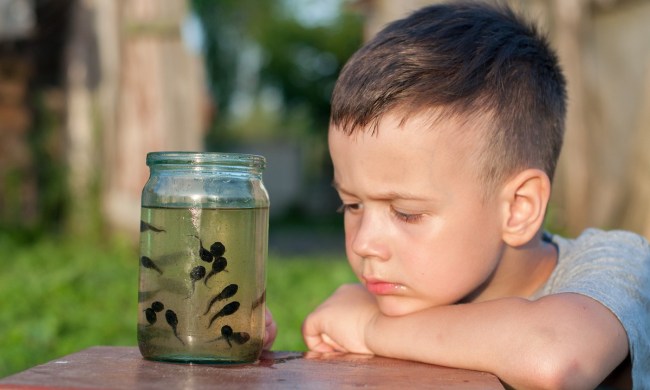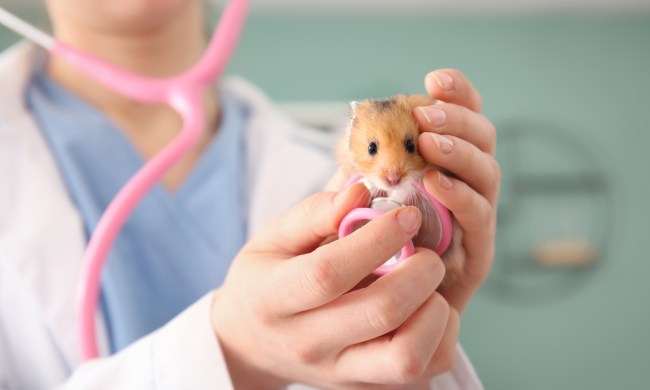Because they’re a species so different from our own, it’s not always possible to discern the signs of a sick hamster. They hide pain and distress rather well, though you’ll be able to tell when something is off if you know what to look for. Some symptoms are more noticeable, especially if they come on quickly, but others might be nearly invisible. You may have to listen or even smell closely to pick up on something your hamster is trying to tell you, but you’ll be glad you did.
Remember that “normal” is different for every pet, and your vet will always be your best resource to diagnose your hamster’s illness. However, these are four common ways hamsters show you they’re sick or in pain. So keep a look out!
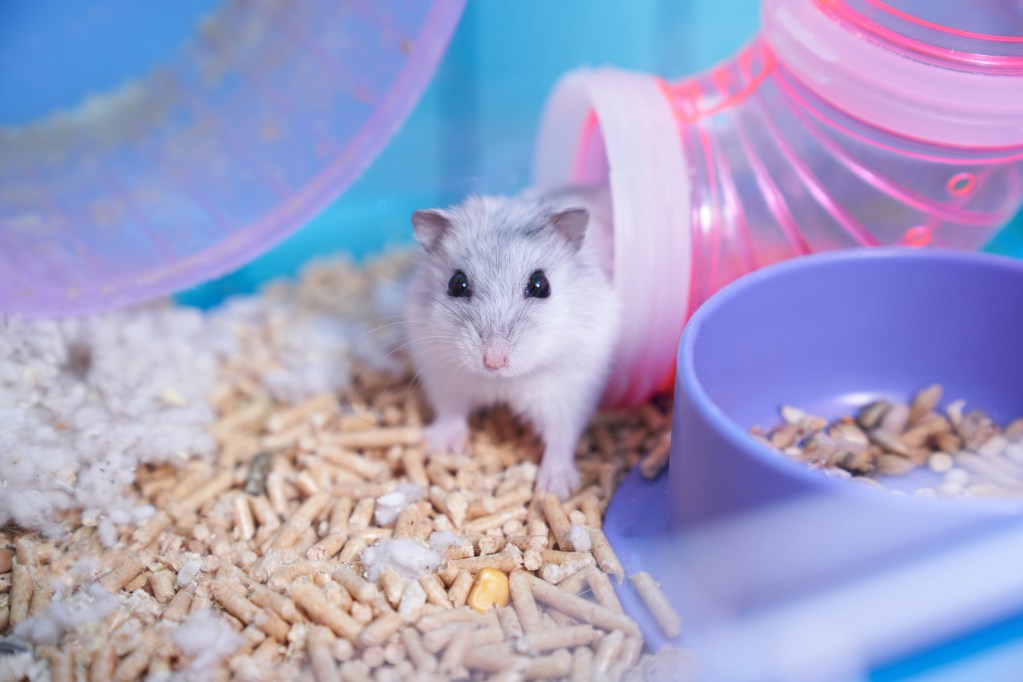
1. Heavy breathing, wheezing, and respiratory distress can be signs of illness
It’s not uncommon for hamsters to suffer from respiratory issues, especially in certain conditions. While some sneezing is normal (just like in people), consistent sneezes are a warning sign of respiratory infection, which could lead to pneumonia in serious cases. Other behaviors to look out for include wheezing, heavy breathing, and discharge from the eyes or nose (via The Spruce Pets).
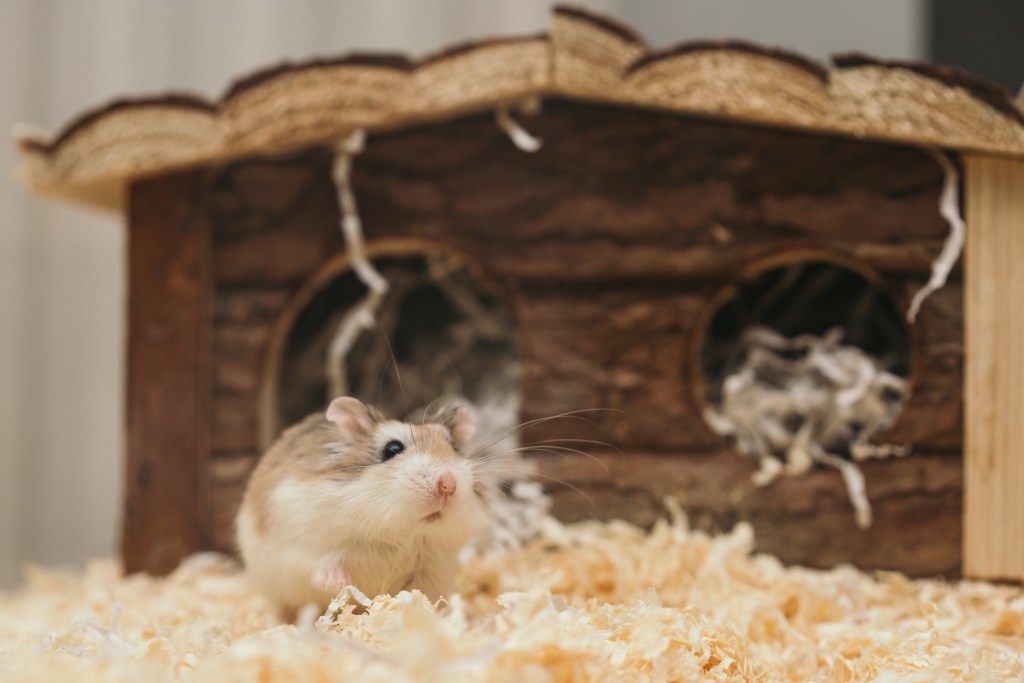
Hamsters are particularly sensitive to their environment, so drafts or even temperature changes can be enough to make them susceptible to a respiratory infection. Consequently, it’s important to strategize the location of your hamster’s cage in your home. Using the wrong type of bedding in their enclosure is another highly specific cause of labored breathing and respiratory distress. Cedar chips and pine bedding are strongly aromatic, which can easily cause irritation to the eyes, nose, mouth, lungs, and even the skin (via Chicago Exotics Animal Hospital). Thankfully, these changes aren’t difficult to make, so your hamster will be feeling right as rain in no time.
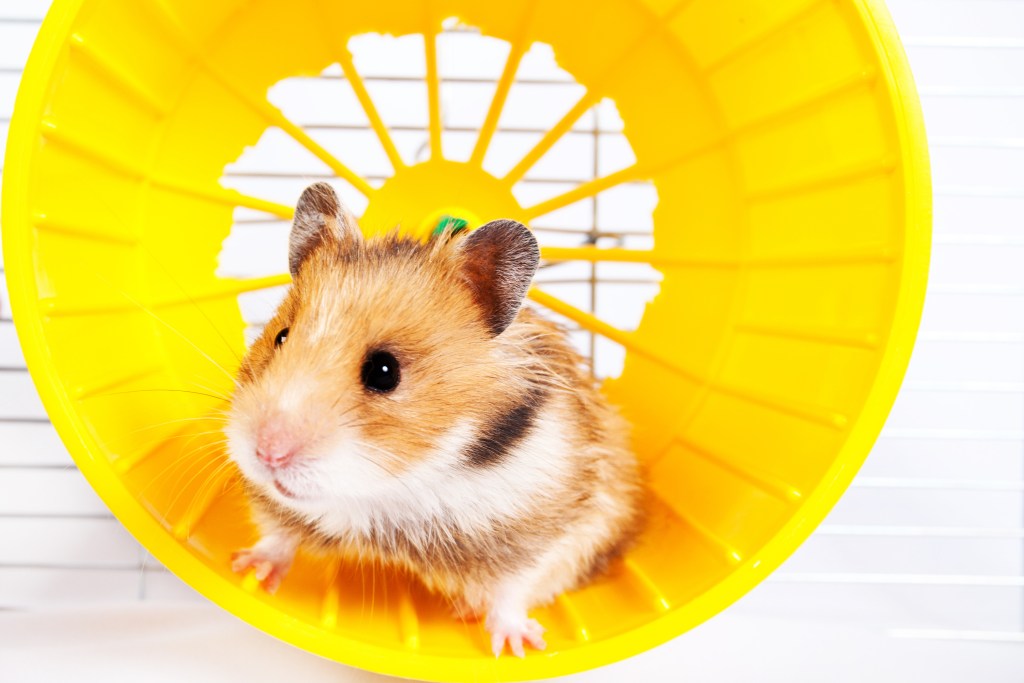
2. Diarrhea and tail wetness can be a symptom of something serious
Wet tail is both a symptom your hamster might experience and the name of a lethal disease. The most common manifestation of this condition is diarrhea, though not all diarrhea is caused by wet tail. With this disease, a bacteria infects the small intestine and causes frequent, unusual bowel movements. In serious cases, your pet may act lethargic, might have a ruffled coat, and might even lose weight despite having a healthy hamster diet, which is what makes this sickness so deadly.
Some veterinarians have noticed a correlation between wet tail and stress in hamsters, including environmental changes such as crowding or variations in diet (via The Spruce Pets). If you notice wetness on your pet’s tail, or if your pet is not moving from the spot where he relieves himself, it’s time to get him checked out by a vet ASAP. Medicated drops for wet tail are available online, but this is a serious condition that requires veterinary supervision.
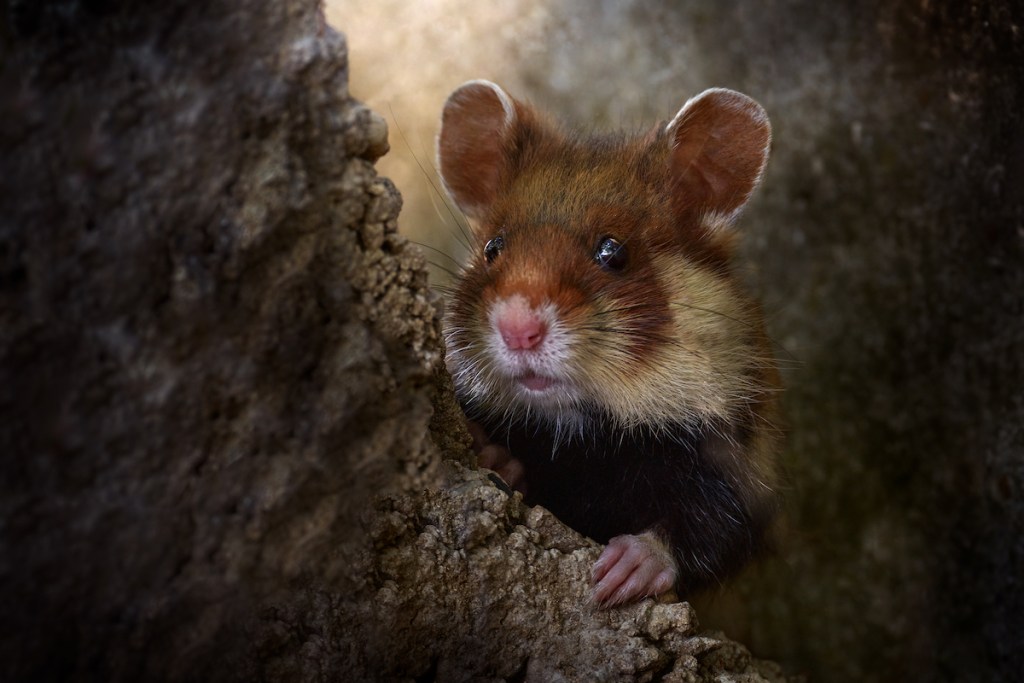
3. A dull, wet, or ruffled coat may not be normal for your hamster
Paying attention to your hamster’s coat is a great way to monitor his health. It’s important to know what’s normal for your pet because every animal is different. For example, most hamsters have a silky coat, but a few have the Rex mutation. This gene makes their coat frizzy and wavy, sometimes even curly. Rex hamsters also have crinkled-looking whiskers, which only adds to their totally healthy and normal scruffiness.
Aging hamsters might experience some hair loss, but this isn’t a cause for concern. However, if a young hamster starts to lose hair, whether gradually or in patches, you should see your vet. Conditions such as adrenal tumors, kidney disease, or thyroid problems can all be the culprit behind bald spots in your pet’s coat, as can parasites such as mites (via beChewy). All these issues are best left to a trusted vet who knows which medications are toxic to hamsters and which can be effective.
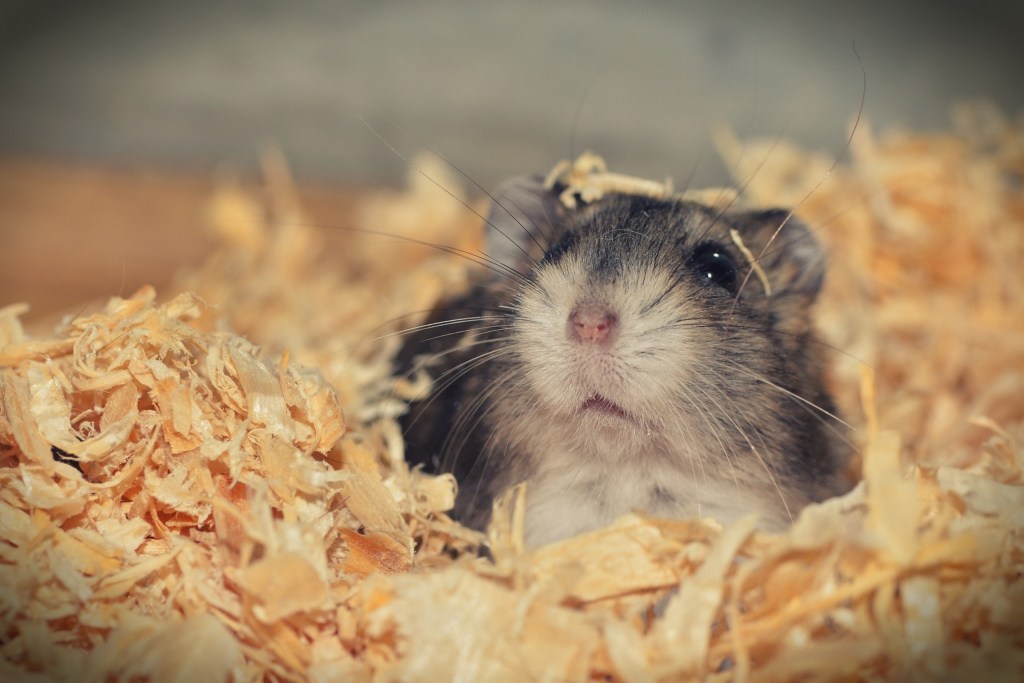
4. Any noticeable change in behavior is worth paying attention to
Observing your hamster in a variety of moods and situations is important so you can distinguish when something is amiss. Sometimes, one small behavioral change can be the only visible symptom of a big problem. For example, more frequent urination is the main giveaway of chronic kidney disease. Alternatively, if your hamster is also drinking a lot of water, he might have a urinary tract infection.
These are both situations in which a vet should be involved, as they are your hamster’s best bet for a complete and speedy recovery, no matter the issue. They are incredibly knowledgeable and able to administer medications and treatments that you can’t do for your furry friend at home.
If you regularly spend time with your hamster and get to know his quirks, you’ll be able to notice an issue before it becomes something huge. With quick action and a few preventive measures, your hamster is in for a long and happy life with his BFF — that’s you!


